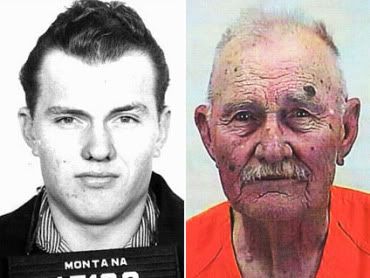Police say they've taken their
best shot at finding missing Utah mother Susan Powell. Now, her dad is hoping a
review of the newly released case file containing tens of thousands of pages of
detective reports, maps, interview transcripts and more might turn up something
the investigators missed.
Chuck Cox told reporters Tuesday
at a news conference in Seattle that a private eye has offered to help comb
through the records, perhaps yielding new or overlooked clues about the
sensational case.
"That's one of the reasons
we wanted it: to find out what (the police) really had, because that would
point us in a different direction and give us a place to search for my
daughter," Cox said.
Susan Powell disappeared in
December 2009, and her husband, Josh Powell, was long a suspect in the case.
But last year, he killed himself and the couple's two young sons in an
explosive house fire in Washington state, and investigators turned their
attention to Powell's brother, Michael, who, they now believe, helped Josh
Powell dispose of Susan's body.
Michael committed suicide by
jumping off a parking garage in Minneapolis three months ago. That left
authorities with no direct suspects, and this week they announced they were
closing the active part of the investigation and opening their books on the
case. They insisted they never had enough evidence to charge either brother.
"We didn't have a body. We
don't have a crime scene," West Valley City Deputy Chief Mike Powell said.
The documents show that police
had always doubted Josh Powell's bizarre alibi. Powell claimed he wasn't home
when his wife vanished because he had just left the house in the middle of the
night to take their 2 and 4-year-old boys camping in the Utah desert in the
middle of a snowstorm.
They describe how Powell gave
muddled answers when asked where authorities should look for her, and how
detectives painstakingly followed up on tips called in by hunters, campers,
prisoners, other law enforcement agencies and even psychics. They checked mine
shafts and shallow pet graves, tracked down a potential witness in Michigan,
used wiretaps and put a tracking device on Josh Powell's van.
Detective reports also reveal
that Josh Powell apparently had an affair with a woman he met through a dating
service months before his wife vanished. The woman, whose full name is
redacted, told them they had sex five to six times during daytime meetings, and
he paid her about $800.
The revelations about the affair
and about Michael Powell's potential involvement were surprising, Cox said, and
he was eager to see what else was in the files.
Cox and Anne Bremner, a Seattle
attorney for the family, said they continue to believe that prosecutors did, in
fact, have enough evidence to arrest Josh Powell and convict him for murder.
Not having a body can make it tougher to prove a murder charge, but prosecutors
across the country have won convictions in such circumstances.
In this case, Bremner said, the
circumstantial evidence was remarkably strong: Powell's alibi was nonsensical.
He hemmed and hawed when questioned by police. He couldn't explain why he had
her cellphone with the digital SIM card removed, and he couldn't explain why,
in the days after she disappeared, he rented a car and drove it 800 miles.
There was also a potential
motive: Josh Powell cleaned out Susan Powell's retirement accounts 10 days
after her disappearance, and he had taken out $1.5 million in life insurance
policies on her.
"In some ways,
circumstantial evidence is the best evidence," said Bremner, a former
prosecutor. "With direct evidence, you can have a witness lie. With
forensic evidence, you can have problems with collection. But circumstantial
evidence never lies and you can't change it.
"They could have arrested
him, and they should have, based on that evidence."
Bremner told the news conference
that even as Utah police close the active part of their investigation into her
disappearance, federal authorities continue to review the case, a claim that
was denied by the U.S. Attorney's Office in Salt Lake City.
Bremner said she and Cox were
apprised earlier Tuesday of the federal investigation by an agent who has been
directly involved in the case. She said she requested permission to announce
the development at the news conference, and the agent granted it. Bremner said
the scope involved looking into what Josh Powell's father, Steve, knew about
his daughter-in-law's disappearance.
In response, Melodie Rydalch, a
spokeswoman for the U.S. Attorney's Office in Utah, issued a statement saying
that federal agencies in Utah had assisted in the investigation and would be
happy to do so again should circumstances warrant.
"However, we do not have
plans to conduct any further investigation," she said.
West Valley City Deputy Police
Chief Mike Powell said he wasn't immediately aware of any ongoing federal
investigation.
Steve Powell had a sexual
obsession with Susan Powell and thoroughly documented it in journals seized by
police. He is currently serving a prison sentence after being convicted of
voyeurism charges for secretly recording young neighbor girls.
Utah police said Monday that
they do not believe he was directly involved with Susan Powell's disappearance
but may know more about it than he has let on.
Police said both Steve and
Michael Powell were uncooperative in the investigation.
They interviewed Michael
numerous times about why he left his car at an Oregon junk yard weeks after
Susan's disappearance _ a fact police didn't learn until nearly two years
later. Officials said he offered evasive answers about why he got rid of the car
and how he had used it in late 2009.




